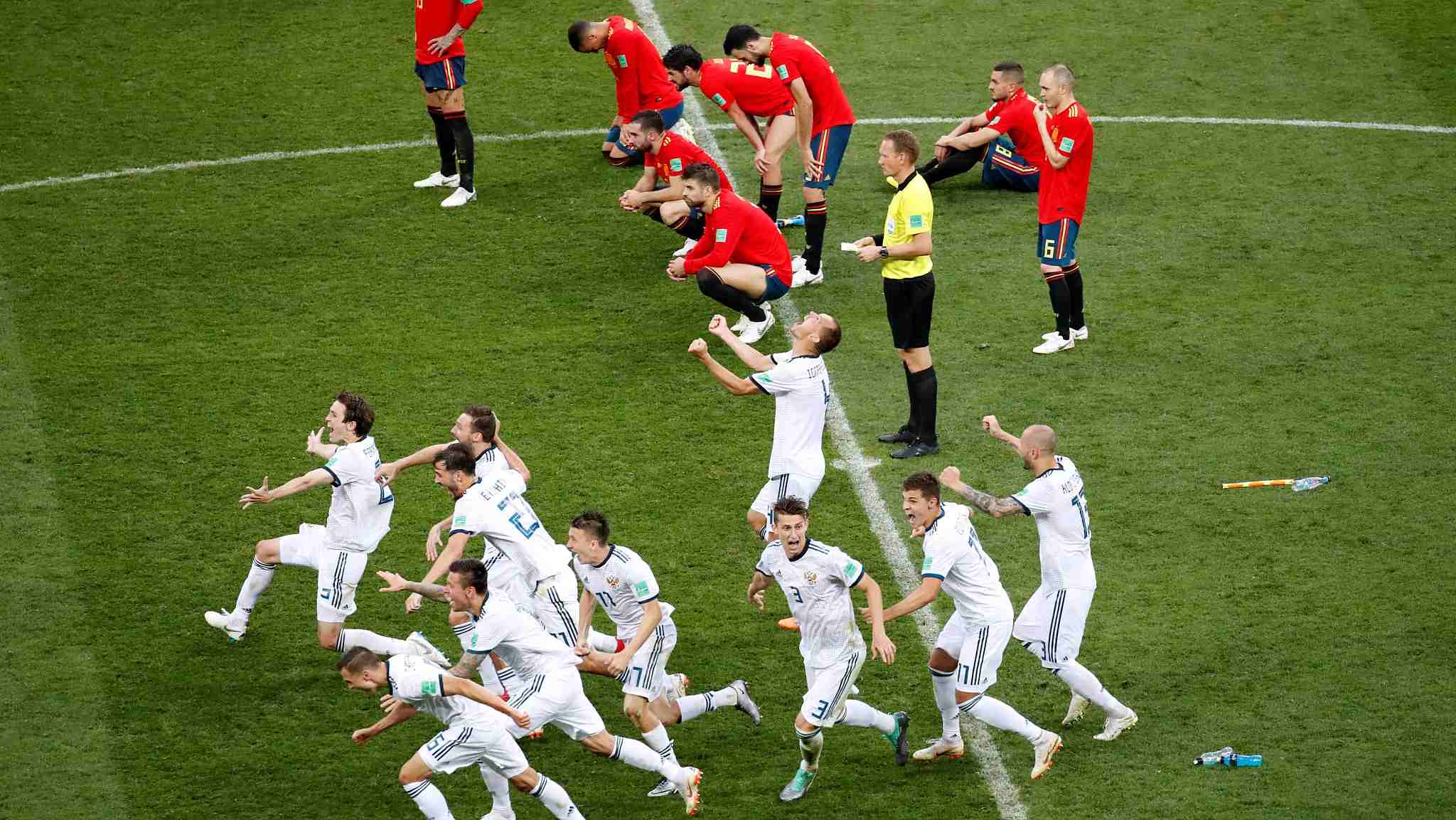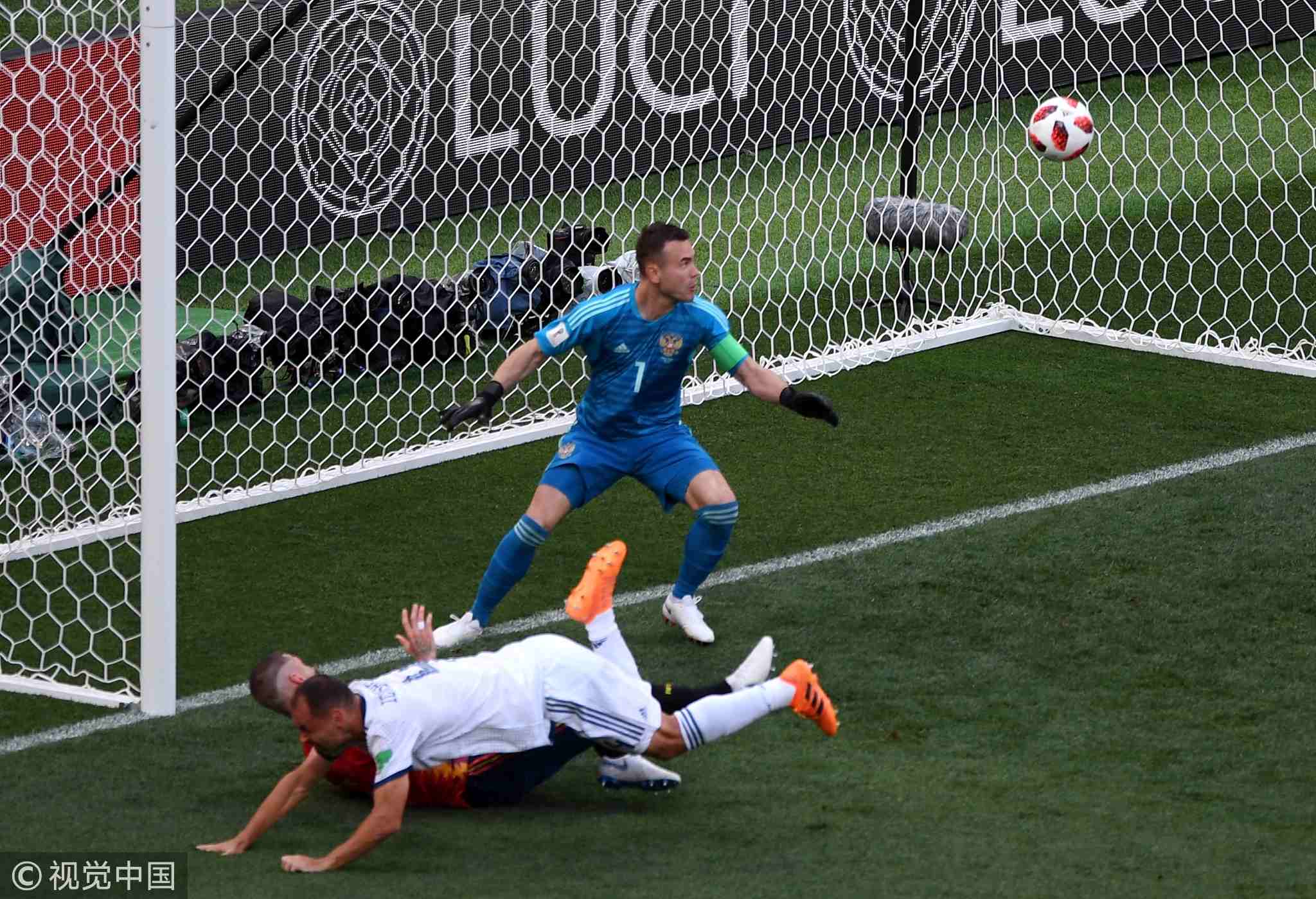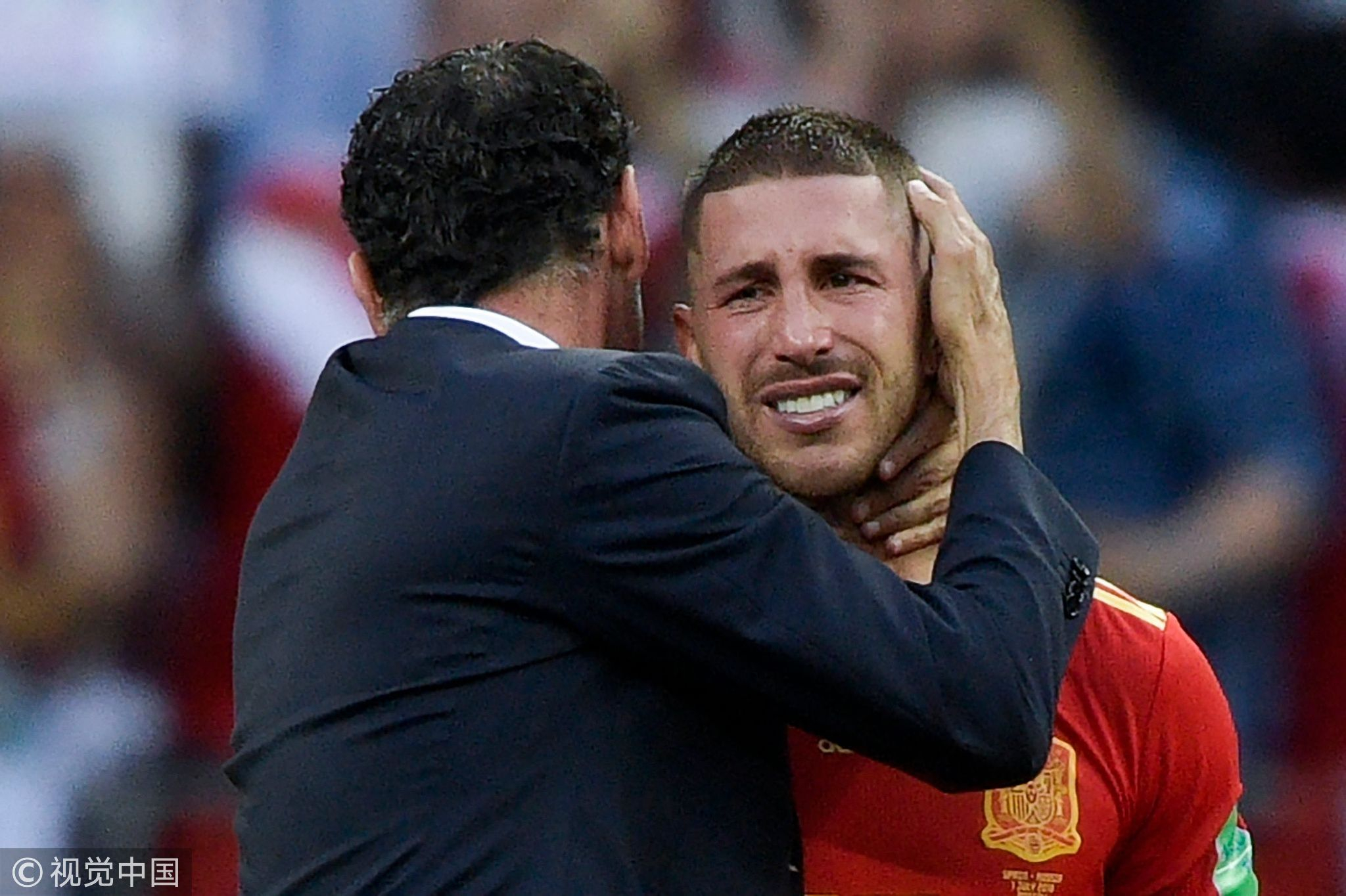
Sports
08:48, 02-Jul-2018
World Cup 2018: Spain encounters a red dawn in Moscow
Updated
07:59, 05-Jul-2018
Josh McNally

Of all the games in the round of 16, Spain vs. Russia in Moscow's Luzhniki Stadium had the potential to be the most interesting. Not the most fun or exciting or skillful, but the combination of the two teams was fascinating.
On paper, Russia are awful and Spain are the future winners, yet through the group stage, Russia smashed Saudi Arabia 5-0, Egypt 3-1 and only then capitulated against a now-quarterfinal bound Uruguay. Spain, on the other hand, drew with Portugal in a barn burner, then struggled against Morocco and Iran, needing wonder goals and the referee's blind eye to make progress.
By the time they faced each other, it felt like Russia had a chance, and with both Argentina and Portugal turfed out in the opening night of the knockouts, it felt like anything could happen. And it almost did.
Two goals were scored in the opening half, one near the beginning, one towards the end, and both came from bizarre errors. In the 12th minute, while defending an unthreatening corner, Sergei Ignashevich, the oldest outfield player in the tournament, scored an own goal completely by accident. In grappling with Sergio Ramos, he fell and it bounced off his ankle over the head of Russia's goalkeeper Igor Akinfeev.
Similarly, in the 41st minute, a standard corner from Aleksandr Samedov ended up being a penalty because Gerard Pique left his arm in the air while defending. Spanish football is built on tactics like this; obvious fouls that exist in a body language grey area that the player can get away with if they're famous enough. Pique is, but those moves don't always work against the host side in the World Cup, and his churlish grin afterwards proved he'd been caught. Artem Dzyuba converted easily and made the game 1-1.

Russia's Sergei Ignashevich accidentally scores an own goal when defending against Spain's Sergio Ramos. /VCG Photo
Russia's Sergei Ignashevich accidentally scores an own goal when defending against Spain's Sergio Ramos. /VCG Photo
Between the goals and for the rest of the match, the two teams found themselves locked in a boring if tense deadlock. Spain's tiki-taka operates at such a high standard that they dominated passing and possession for the entire duration, but Russia were set up in a 3-4-2-1 formation designed to collapse in on itself and absorb Spain as they approached. Occasionally, they would hit Spain on the break, but Russia were more content to get too many men in the way of Spain and, as time went on, Spain proved to be out of ideas.
Extra time beckoned, then arrived. The superior strength and conditioning of La Liga came to the fore as Russia started to look leggy, yet the Russian Premier League mindset was enough to keep Spain at bay. The constant small passes that enervated all opponents from 2008 to 2012 now looked like small passes and nothing more; Spain went in triangles around Russia without posing any actual threat and Spain, smug enough to assume this would be a rollover, were bratty. Imagine having to actually compete in a round of 16 game.
In the 114th minute, it seemed like the yin and yang of the first half had synthesized to send it in the expected direction as Ignashevich held Pique in the box, making sure he couldn't get on the end of a Koke cross. The VAR showed he had a handful of the Spaniard's shirt, but no penalty was given as Pique was also trying to get a foul of his own.
As if directed by Akira Kurosawa himself, the heavens above Moscow opened in these dying minutes, signifying that the tension was soon to be broken, and it was – by penalties. It was here that the belief in Russia turned on its head. It's one thing to spend 120 minutes shutting Spain down, but now it's an individual contest and Manchester United's David De Gea is currently the world's best goalkeeper whereas Zenit St. Petersburg's Akinfeev is considered to be the worst starting goalkeeper in the regular UEFA Champions League rotation.
Ramos and Akinfeev lined up to take the toss and, with the benefit of hindsight, Ramos' faux geniality was running at fever pitch, suggesting that he was nervous about being this deep into a match against the team FIFA ranks as 70th in the world. Andres Iniesta, likely playing in his final World Cup, went first and scored. Fyodor Smolov went next and scored, just about, as De Gea got a hand to the ball, pushing it into the side netting. The troubled twosome Pique and Ignashevich each scored too.
Then Koke's shot got saved by Akinfeev, who seemed to find the rhythm of Spain's penalty's just at the right time. Wrong-footed against the first two, he switched his tactics for the third penalty and zigged when expected to zag. Aleksandr Golovin scored, making Russia taking the lead for the first time didn't happen in vain. Ramos and Russia's golden boy Denis Cheryshev scored too, making it 4-3.
Iago Aspas stepped up and took a big, long, theatrical run up, hoping to bluff his opponent into embarrassment; instead, Aspas took long enough that Akinfeev delayed too and, as he leaped to his right and Aspas shot down the center, the penalty accidentally got saved. Akinfeev kicked it away in mid-air, making Aspas look like a fool and sending Russia through to the next round. Besides for coach Stanislav Cherchesov who remained stoic, the rest of the Russians were jubilant. Spain were shocked, stunned and tearful, and it was entirely their own fault.

Spain's Sergio Ramos cries as his coach Fernando Hierro tries to comfort him after the penalty shootout against Russia in their round of 16 match at the Luzhniki Stadium in Moscow, July 1, 2018. /VCG Photo
Spain's Sergio Ramos cries as his coach Fernando Hierro tries to comfort him after the penalty shootout against Russia in their round of 16 match at the Luzhniki Stadium in Moscow, July 1, 2018. /VCG Photo

SITEMAP
Copyright © 2018 CGTN. Beijing ICP prepared NO.16065310-3
Copyright © 2018 CGTN. Beijing ICP prepared NO.16065310-3